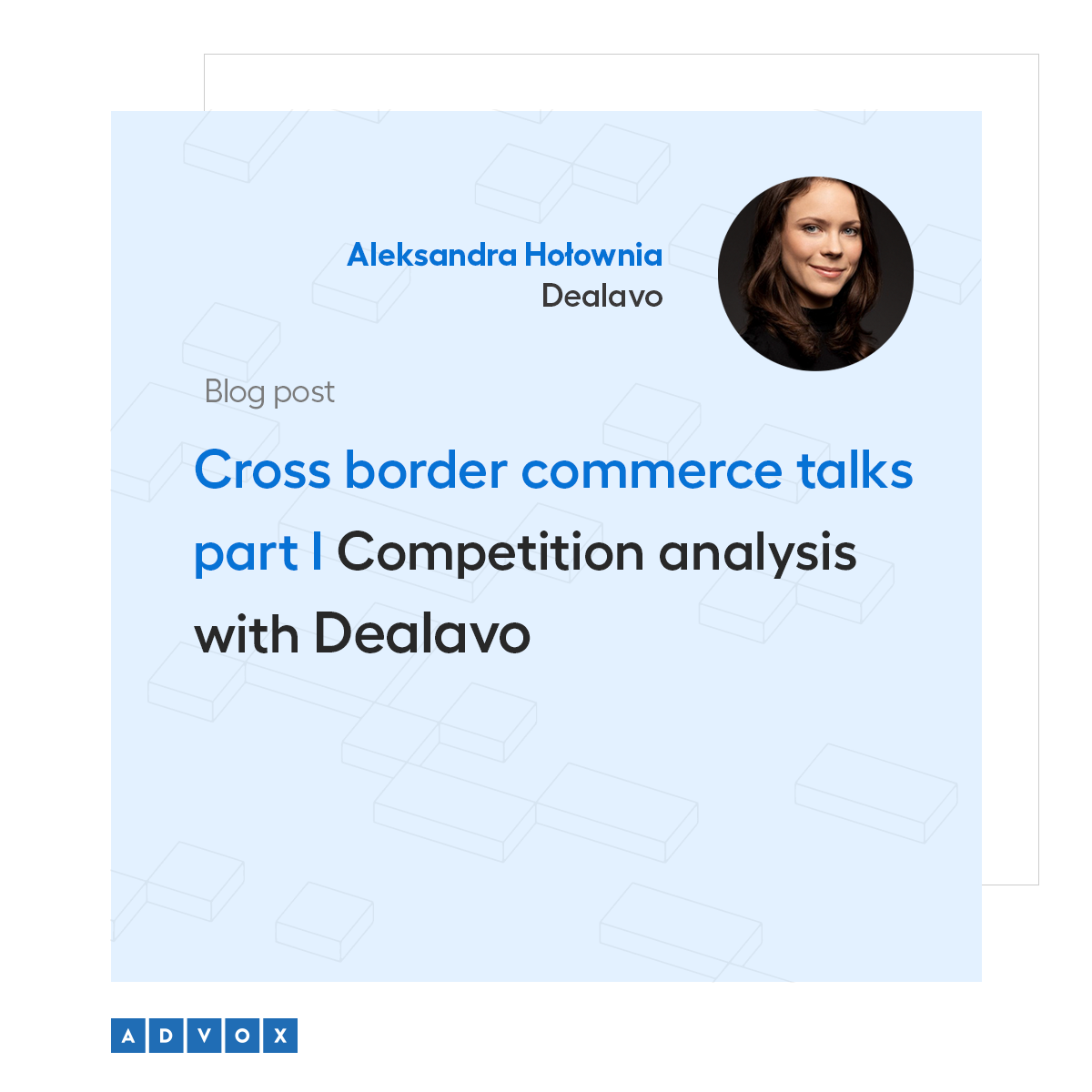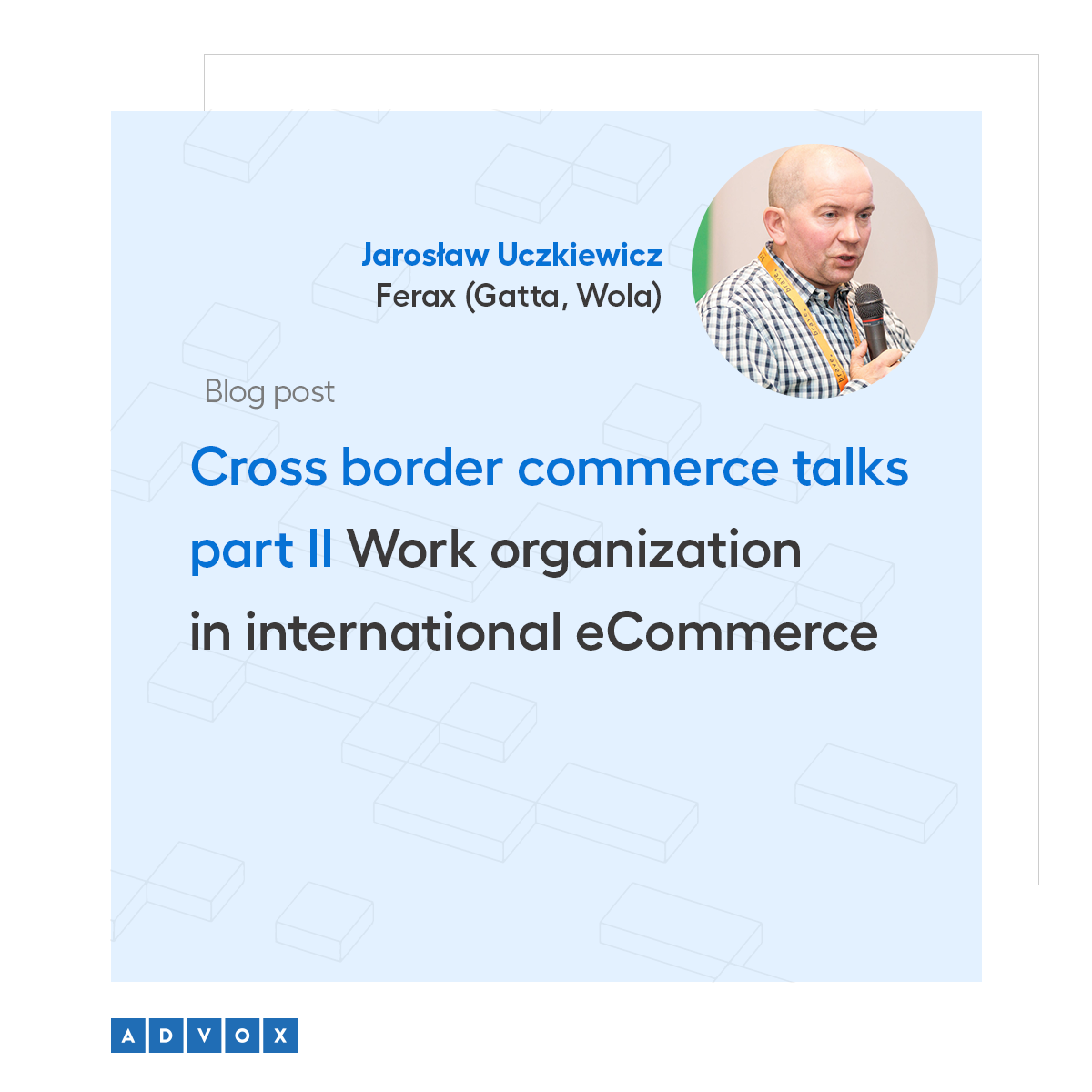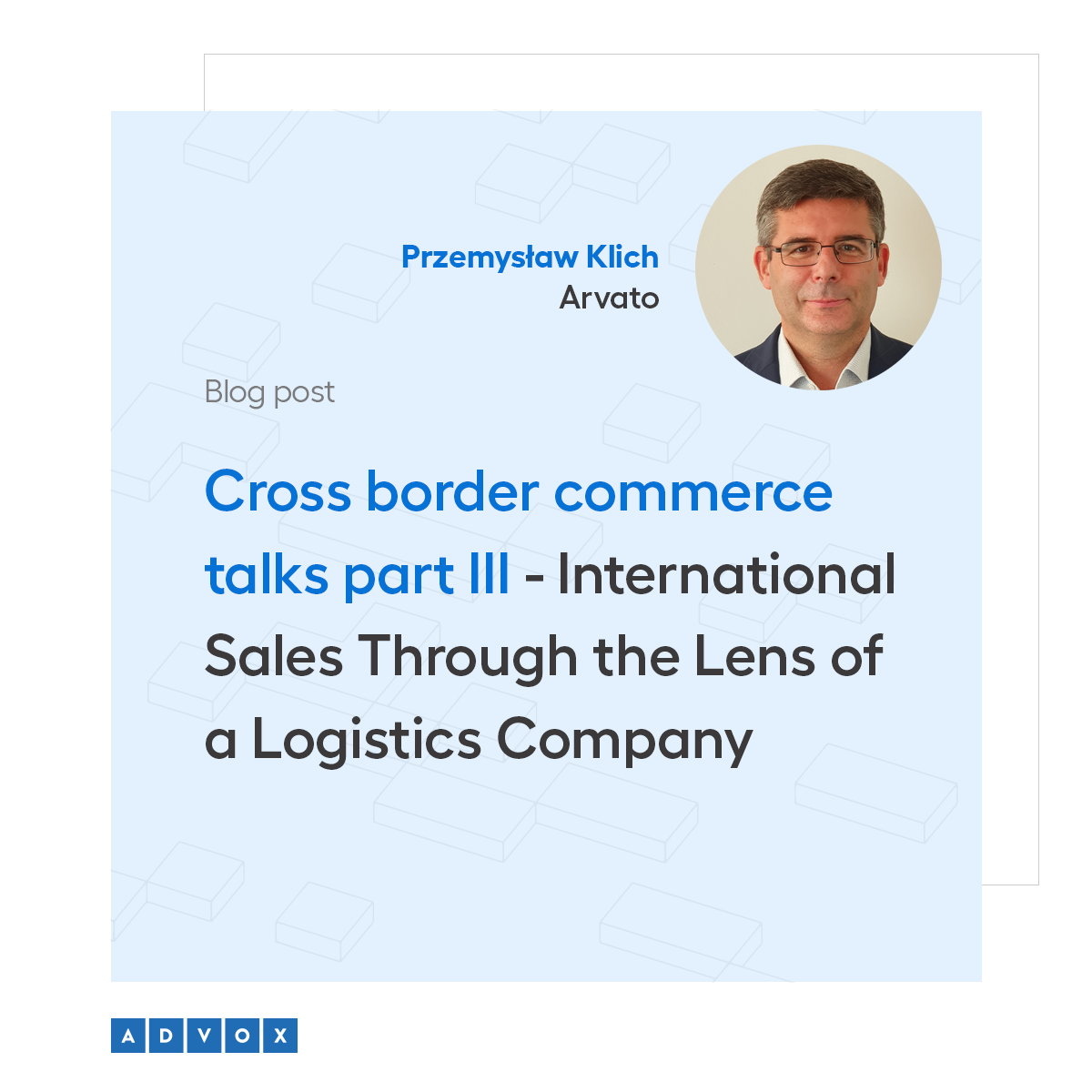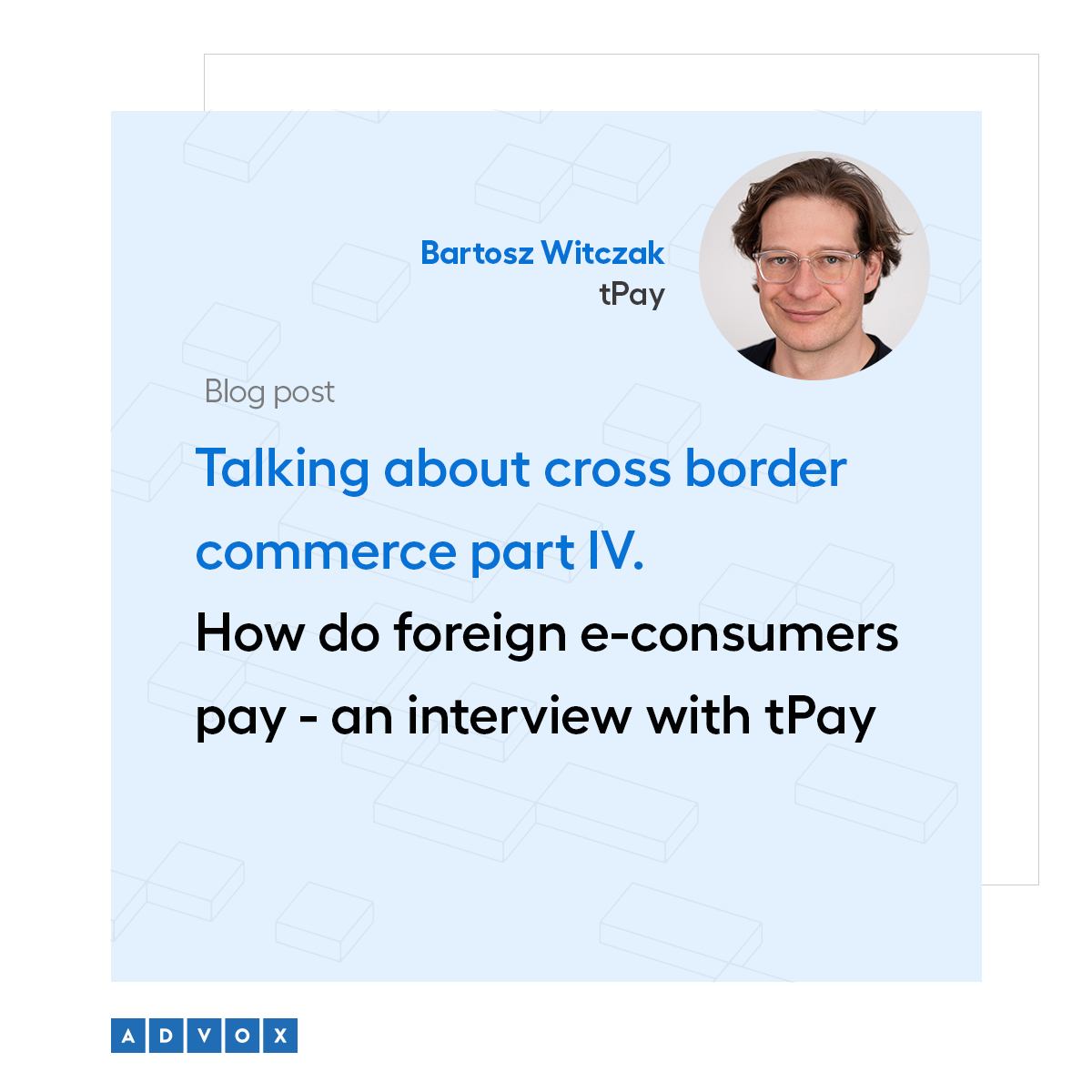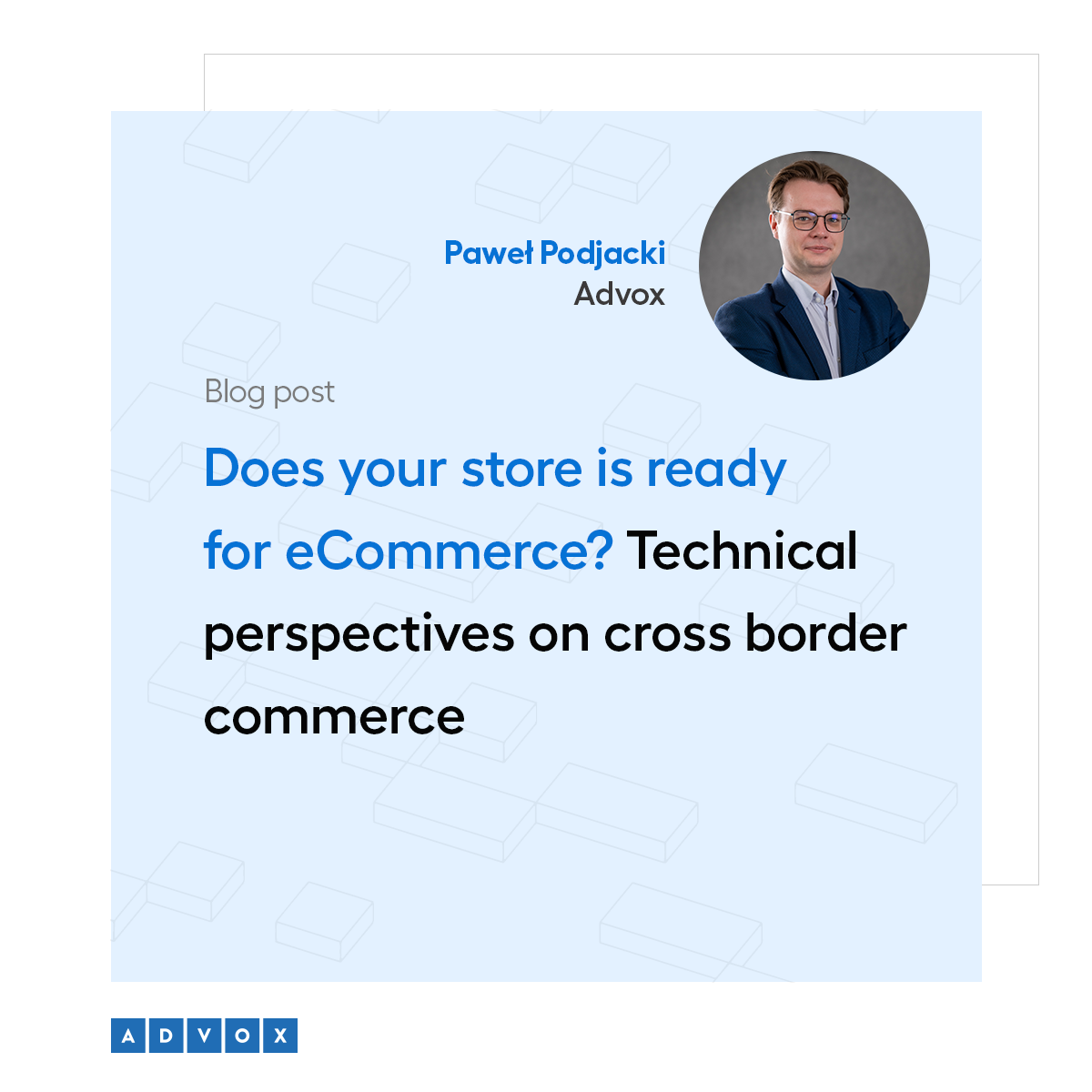Talking about cross border commerce part VI Marketing for foreign e-commerce with Marafiki agency
Preparing to go out to a new market as part of your eCommerce business cannot bypass the issue of marketing. Reaching the right audience and encouraging them to interact with your eCommerce is a big if not the biggest challenge in the whole process. What are users searching for, in what volumes, and with what words? These questions are the starting point when analyzing a particular foreign market for developing a marketing strategy. It is these questions that we talked about in the 6th interview in our series on cross-border commerce. If you want to learn what promotional activities will help you successfully sell online abroad, we invite you to read the conversation with Krzysztof Wroński, Co-founder & CEO at Marafiki marketing agency.
Check out what else you should pay attention to in order to succeed in cross border commerce
Rafał Gadomski: The beginnings of selling abroad can be difficult. Gaining popularity is not an easy task, especially in the midst of increasing competition in the online world. How do you use marketing to get your store noticed by customers in a whole new market?
Krzysztof Wroński: Introducing a brand successfully to a new country can be a challenge, so it makes sense to approach the task strategically. The primary factors in this case are market and audience research. The preferences of potential customers and getting to know their profile is the determinant of choosing the right tools. Building trust is an absolute priority - especially in the case of countries that are characterized by a high attachment to domestic companies (such as the Czech Republic or Germany).
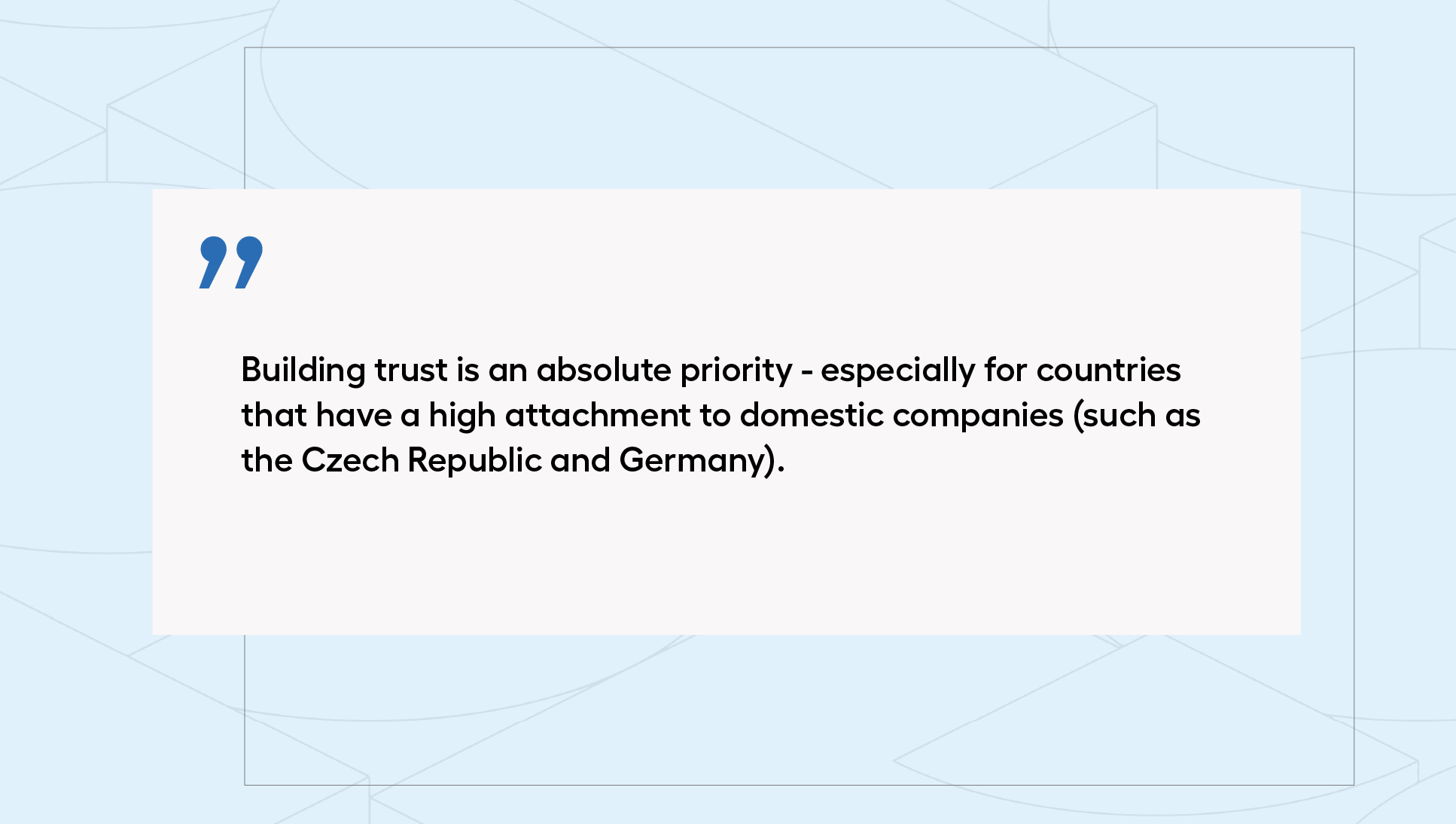
What activities are most powerful? Engaging the local community, building interaction through social media, quality content, as well as promoting content through SEO activities, paid campaigns, or working with influencers.
RG: Is it worth investing in SEO at the very beginning of overseas expansion?
KW: Investment in SEO efforts always pays off. This question of when to start such a campaign cannot be answered unequivocally. What is certain, however, is that delaying SEO activities negatively affects our position in the industry. Competitors who have already implemented SEO activities will quickly begin to "run away" from us, and therefore we will have to not only catch up with them but also make up the difference.
The primary determinant of the effectiveness of the activities undertaken is the strategy. Depending on budgets, it is possible to implement progressive activities. They presuppose the use of smaller start-up expenditures in order to increase them at the right time and strengthen the results achieved. Of course, everything depends on a number of strategic and business factors.
RG: In that case, how do you effectively start your SEO efforts?
KW: Relatively quick benefits and an effective campaign launch can be achieved through comprehensive knowledge of the market itself. If you already understand the industry within which you want to implement SEO activities, then you certainly know the trends and topics that are typed into Google searches by your potential customers. Why is this important? This knowledge will allow you to focus on selected product or service groups.
RG: Are there any other factors to pay attention to when creating a campaign based on SEO?
KW: Knowing your competitors is always an important factor in marketing. It is important to look at your competitors' activities and consider what they are spending on SEO for their websites. In the initial phase of SEO efforts, it is also important to identify niche or unique opportunities that will help increase the visibility of the website.
At each stage of SEO activities, financial outlays are needed. These are spent on, among other things, acquiring inbound links or creating external materials.
Another important element is the verification of the market, and thus the assessment of the demand for given services and products. This applies to all marketing activities. Determining consumer needs is the basis not only for planning customer acquisition strategies but also for staying ahead of the competition.
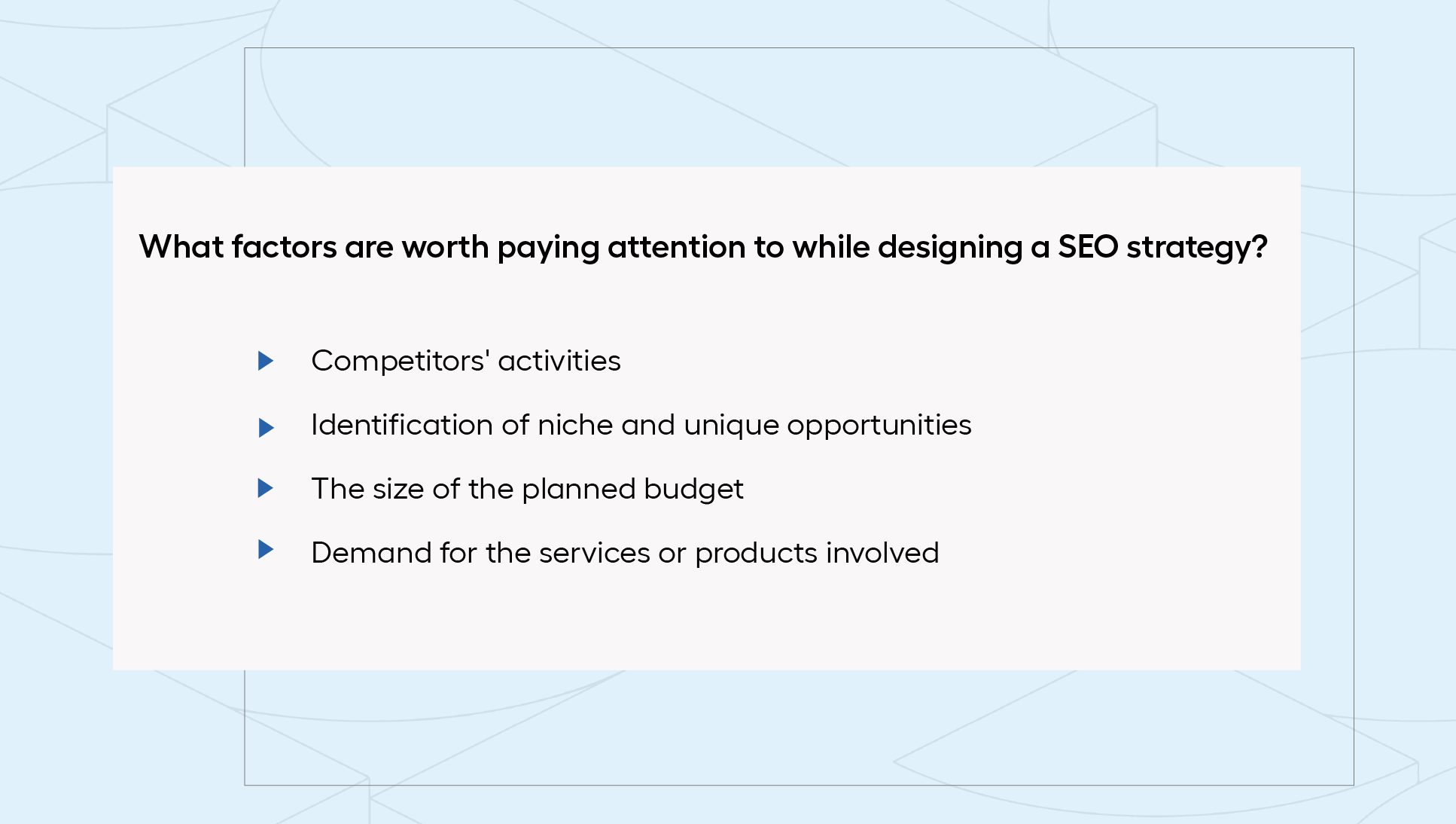
RG: We already know what steps to take to develop a marketing strategy. And what metrics should be tracked to assess the effectiveness of overseas campaigns?
KW: There are a number of metrics to see if our actions are effective. A good example would be tracking conversions, e.g. form fills, clicks on a phone number or email address on a landing page or landing page. Evaluating this data will make it easier to identify keywords that bring the desired results, and either adjust rates or optimize ads for those phrases.
The matter becomes more complicated in the case of online stores. Here the evaluation of the effectiveness of the campaign depends not only on purchases but also on Google Ads return on investment (ROAS). The cost of conversion for the entire campaign and for individual products is also not insignificant. We should also take into account the margin or the percentage of margin we make by selling a product.
In the case of overseas expansion, it is also worth focusing on allocating a portion of the budget for A/B tests - they are an indispensable component of successfully running campaigns in foreign markets. Additional optimization of the product file, landing page, or landing page should also not escape our attention.
RG: How does the advertising market differ between European countries? Are there significant differences?
KW: The advertising strategy must be tailored to a specific market - this is very important. In Western countries, there is much more advertising competition, which translates into higher rates. This is why the differences between the Czech or German market and the Polish market are significant. Understanding them is a key element of marketing strategy.
In a word in conclusion - successful marketing campaigns in foreign markets require a holistic approach. You need to take into account not only metrics but also the actual goals you set (KPIs) and successively pursue them. Remember to analyze the market, the competition, and regular testing. The latter plays a key role in the effectiveness of campaigns in foreign markets.
RG: How can cultural factors affect the perception of a brand in a selected country?
KW: Cultures, social values, and behavioral norms in different countries can differ significantly and influence consumer preferences. Brands must be careful in the choice of colors, symbols, and the way they advertise their products to avoid conflicts based on cultural feelings or stirring up negative emotions in local customers.
In addition, certain words or phrases may have different meanings or connotations in different languages and cultures. A good example is Bulgarian spinning and nodding. In Poland, spinning means negation - in Bulgaria, it's the complete opposite. And while in the larger metropolitan areas, this distinction does not occur, native Bulgarians living in smaller administrative units still turn their heads to "yes" and spin to "no."
Conflicting values can also be a bone of contention. If a brand is associated with a country that has a negative reputation in the country, this association can affect the brand's perception among target consumers. For example, if a brand comes from a place with poor food safety, its perception in a country where food safety is an important factor is bound to be influenced by this factor.
Exploit the full potential of your overseas e-commerce marketing
Effective marketing efforts play a key role in crossing borders and winning customers in the global eCommerce market. You already know that tailoring content, advertising messages, and communication strategies to local preferences and the culture of a country can bring significant success in overseas expansion. Now what? It makes sense to start taking real action. And don't forget to keep an eye on our blog, where more interviews in our cross-border series will be coming soon!
